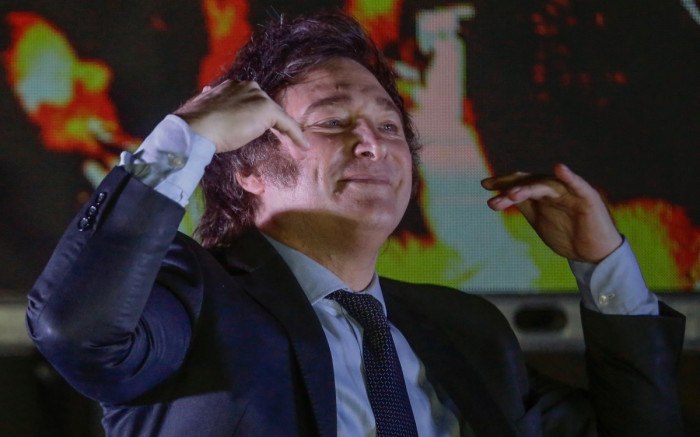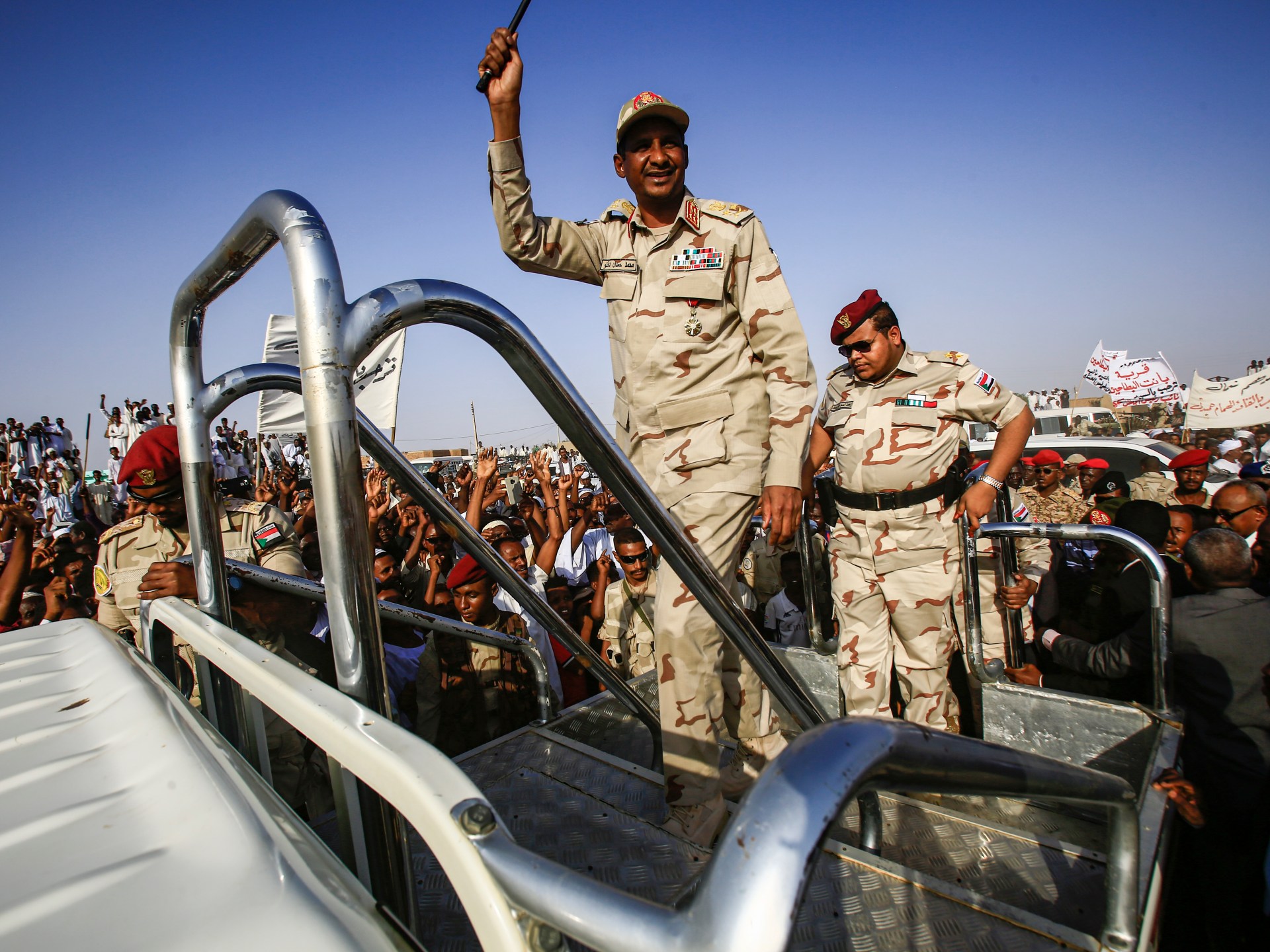
Latin America’s third-largest economy suffers from annual inflation of 143 percent.
Argentine presidential candidate of the La Libertad Avanza alliance Javier Milei celebrates with his supporters after winning the presidential election runoff in front of his party headquarters in Buenos Aires on November 19, 2023.
BUENOS AIRES – Argentina’s stock market reacted with optimism Tuesday to libertarian Javier Milei’s stunning election victory, even as the country is gripped by uncertainty about what changes the self-described “anarcho-capitalist” will bring.
Milei, a 53-year-old economist who has vowed to ax several government departments and sometimes campaigned from the stage with a chainsaw, slammed Argentina’s long-dominant Peronist coalition as voters punished the government for decades of economic decline .
Latin America’s third-largest economy suffers from annual inflation of 143 percent.
Monday, the day after the election, was a holiday in Argentina, delaying market reaction.
But immediately on Tuesday, the stock market rose by 20 percent, maintained its strong gains and finally closed with a gain of 17.7 percent.
That same day, the president-elect also received a call from Pope Francis, himself Argentine, who was the target of offensive comments from Milei, who had accused him of “promoting communism” during his campaign. He later apologized.
In his congratulatory call to Milei, the pope expressed “wishes of unity and progress for our country,” the president-elect’s office said, while Milei noted that he had invited Francis to visit Argentina.
The Argentine peso is under tight control and the informal exchange rate of the “blue dollar,” seen as a barometer of panic in the country, reacted moderately, rising slightly to 1,050 pesos per dollar.
The price is almost three times the official rate of 371.50 and analysts warn that a devaluation is long overdue.
Milei has vowed to replace the peso with the U.S. dollar and close the central bank – which he accused of engaging in rampant money printing to finance excessive government spending – to stop inflation.
During his campaign, he said he would cut government spending and give up about 10 ministries, among other controversial proposals.
He later toned down some of his rhetoric, leaving uncertainty about his actual plans.
‘OWN GOAL’
While stocks reacted positively to Milei’s victory, Mexican President Andres Manuel Lopez Obrador was less enthusiastic, comparing the election to an own goal in soccer.
“With all due respect, it was an own goal and I don’t agree, although I respect the decision of people with right-wing governments,” he said at a news conference on Tuesday, without directly naming Milei.
Analysts say that given Argentina’s massive problems, any solution will inevitably bring economic problems.
In his first interviews on Monday after the election, Milei warned that it would take up to two years to curb inflation and laid out his plans for reforming the state.
Milei said: “Anything that can fall into the hands of the private sector will be in the hands of the private sector,” including state oil company YPF and state media.
The rise in Argentina’s stock market was led by majority state oil company YPF, whose shares rose 36.5 percent following Milei’s comments.
On Monday, Wall Street-listed YPF shares rose 40 percent at market close and fell just over one percent by Tuesday’s close.
Milei also said he would push for the removal of strict exchange controls – analysts say the peso’s official exchange rate to the dollar is an expensive fiction.
When asked about his dollarization platform, Milei said the priority was “to close the central bank. Then the currency will be the one that Argentinians freely choose.”
Milei held his first meeting with outgoing President Alberto Fernandez on Monday to coordinate what the new leader called an “orderly and responsible” transition ahead of his Dec. 10 inauguration.






Recent Comments